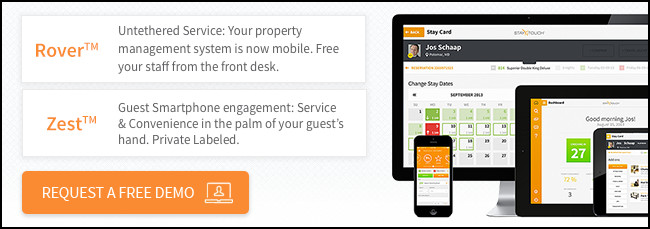The primary goal of almost every owner and operator of a hotel is to make as big a profit as possible. However as newer technology continues to reshape consumer behaviour traditional revenue management practices are becoming obsolete. In order to remain competitive hoteliers need to adapt their strategies in order to drive profitability and boost revenue. Here are 4 such ways:
Revenue Management System – Get One: According to a SiteMinder survey into the usage of hotel technology just 6% of European Hotels and 10% of USA hotels using a revenue management system, it’s a pretty low adoption rate with quite some way to go.
A simple but powerful tool, a revenue management system optimizes revenue performance. It helps reduce guest acquisition costs, optimize distribution and minimize booking costs. It allows hoteliers to set the right rate and best price for each hotel room category and type based on the market analysis and other factors, has the ability to generate dynamic offers and distribute rates in real time across all channels.
Ultimately a revenue management system enables hoteliers to make faster market decisions, maximize productivity, and increase efficiency while at the same time helping to boost the hotels bottom-line.
Use Data and Predictive Analytics: According to the 2017 Lodging Technology Study, published by Hospitality Technology magazine, when it comes to data, 50% of those surveyed said they are in “education mode” for analytics, about a third are critical of their current efforts to explore analytics, with 34% admitting that they lag competitors. However in today’s technology driven self-sufficient society the use of data and analytics is central to increasing revenues and create more loyal guests.
Data has resulted in better forecasting, which has lead to flexible, optimized pricing. But revenue management has evolved from just a rate-setting function. Revenue management systems built on predictive analytics incorporates more than just historical room rates and competitors’ prices; it adds forward-looking data such as web shopping data, airline and weather information, online reviews etc. Availing of and utilizing such data allows hoteliers to detect significant shifts in demand or booking pace and as a result calculate room rates independently for each booking date, customer segment, room type and distribution channel.
Data lets you make solid predictions and used in the right way hoteliers have the opportunity to provide customized offers, optimizing revenue and boosting occupancy.
Work with Digital Marketers: While it used to be “you do your thing and I’ll do mine,” according to Darlene Rondeau the two disciplines of revenue and marketing are now (in such a competitive industry) much too co-dependent to operate independently. And she has two important reasons why revenue managers and digital marketers should work closely together i.e.
- “Digital Marketers have access to valuable website data, which can be used to determine “early signs” of future demand, trending cities and the performance of promotional offers to refine if necessary. All of this precious marketing data goes a long way in helping the Revenue Manager sharpen their plan.
- When data is shared and joint metrics are applied to measure performance, the two roles can collaborate to win the hearts, minds and wallets of today’s contemporary traveller.”
The benefits of such an alliance include the sharing of valuable guest data that can form current and future marketing initiatives, ensuring room rates are competitive, and the ability to drive more bookings at a lower cost of acquisition.
So essentially, by using resources more effectively, working across departments and in unison, means teams are better equipped to tailor their strategies and create smarter revenue opportunities.
Take a Customer Centric Approach: While there is no debate that guests are central to the hospitality business, the hotel of the future is about people i.e. Instead of trying to get customers to buy what the company has, providing a customer-centric approach means companies create products and services that customers want.
Thanks to the internet and the multitude of touchpoints, guests now want a more customised experience; they expect deeper, more personalized interactions regardless of how they choose to interact – whether on property, online, via email, phone, social media channels and beyond.
By taking a customer-centric approach and utilizing customer data effectively hoteliers have the opportunity to provide a seamless consumer experience and in doing so, “…your customer satisfaction rate will improve and you’ll retain customers – creating a more profitable long-term relationship.” StiboSystems.
In today’s technology driven era, investing in the right tools and utilising data effectively will ultimately help you remain competitive, drive profitability and boost revenue for your hotel.
Sign up for a free demo to see how a mobile hotel PMS increases revenue and guest satisfaction.








